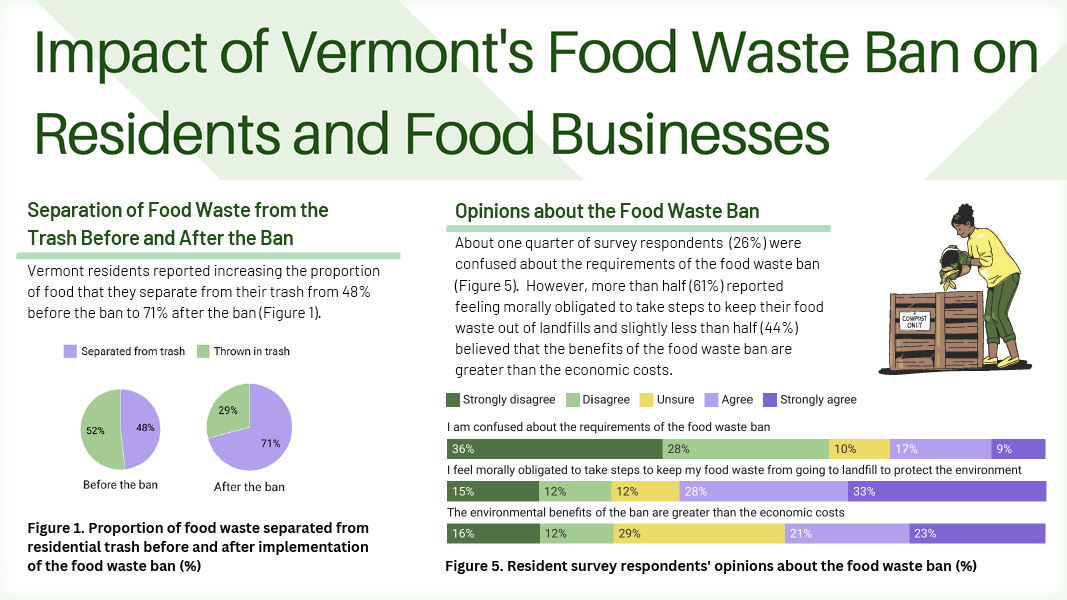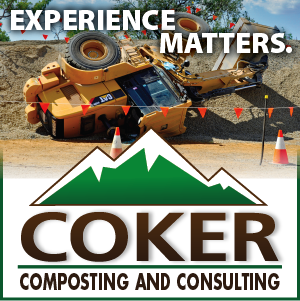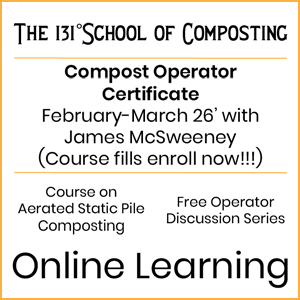Top: Graphics courtesy of University of Vermont’s College of Agriculture and Life Sciences Faculty Publications.
A team of researchers at the University of Vermont (UVM) analyzed the impact of the state’s food waste disposal ban on households and food businesses, conducting two statewide online surveys in 2021 and 2022. Enacted in 2012 as part of the Universal Recycling Act (knowns as Act 148), compliance with the ban on disposing food waste was phased in, starting in 2014 with Vermont’s largest food waste generators. On July 1, 2020, all food waste generators in the state, including households, had to comply. The resident survey was embedded within the 2022 Vermonter Poll — an annual statewide public opinion survey — and was completed by 783 Vermont residents, note the researchers. “The sample represents the adult population of Vermont with respect to gender distribution and household size but over represents older adults and those with greater incomes and education.” The food business survey was distributed through a variety of outlets, including email lists of nonprofit, business, and state agencies, public posts, and newspaper advertisements. The food business survey was completed by 95 food service and food retail professionals. A policy report on the study’s outcomes, “Impact of Vermont’s Food Waste Ban on Residents and Food Businesses,” was published in January 2023 in UVM’s Scholarly Works.
Key findings of the survey, excerpted from the report, include:
- Following implementation of Vermont’s food waste ban, residents reported increasing the amount of food waste that they separate from their trash from 48% to 71%. The leading disposal method for food waste is composting (46% of all food waste disposal).
- Over a year after full implementation of the ban, however, 26% of respondents to the resident survey report feeling confused about its requirements. Of those who engaged in composting (85% of respondents) on their own property or giving their food waste to a friend or neighbor to compost, 20% find it to be hard or very hard.
- Support for and knowledge of the food waste ban is high among Vermont’s food retail and food service professionals, and few continue to dump food waste in the trash.
- However, over 37% of food retailers, , about 53% of food service operators, and 40% of those who run both types of businesses felt that compliance had been difficult.
- Impacts of the ban differ for different types of food businesses, with food service businesses reporting more negative impacts on operating costs and revenue than food retailers.
Authors of the report are Emily H. Belarmino, Claire Ryan, Qingbin Wang, Meredith T. Niles, and Margaret Torness, all faculty at UVM.













